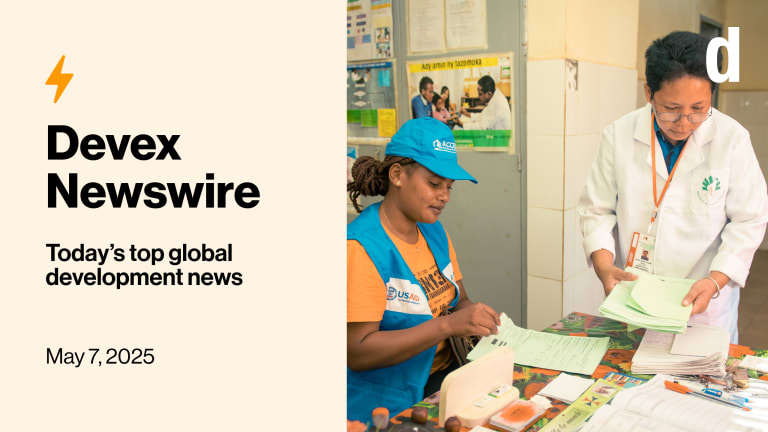
The Department for International Development will focus on supporting wealth creation in developing countries, strengthening security and governance in fragile states and leading global action to improve women and girls’ lives, according to documents the department released recently.
The DfID’s business plan for 2011-2015 identifies these three as the U.K. government’s priorities for the next five years, along with honoring the country’s international commitments, driving urgent action to address climate change and making U.K. aid more transparent.
The plan also emphasized DfID’s plan to shift funding away from underperforming projects and marketing and communications initiatives. It also reaffirmed the department’s plan to end its programs in Russia and China.
Secretary of State for International Development Andrew Mitchell has repeatedly explained that DfID is shifting its focus to a more results-based aid system. Earlier this year, Mitchell launched a review of the U.K. bilateral, multilateral and emergency response programs. The findings of these reviews are due for release in February and March 2011, according to the business plan.
In addition to aid priorities, the DfID business plan outlines a structural reform scheme that envisions a “power shift” in the department’s operations.
“We want to bring about a power shift, taking power away from Whitehall and putting it into the hands of people and communities, and a horizon shift, making the decisions that will equip Britain for long term success,” the document states.
Plan of action
DfID’s business plan includes timetables outlining the target start and end dates of projects and undertakings the department has planned for the next five years. The document notes that these timetables are subject to Parliament’s schedule.
Among the most recent activities planned is the release of a malaria evidence paper and business plan that will detail how DfID will spend up to 500 million pounds (USD799 million) annually on fighting malaria. The paper is expected to be released December 2010.
By January 2011, DfID aims to have published full information about its new projects with more than 500 million pounds in funding and launched a new mechanism that will allow U.K. citizens to have a direct say on how parts of the aid budget will be spent. The department is also poised to lead international efforts to encourage other donors to implement a robust International Aid Transparency Initiative.
Meanwhile, on boosting wealth creation in developing countries, the business plan shares that DfID will make its aid more private sector friendly and work to increase the impact of its Commonwealth Development Corporation. The plan further commits DfID to supporting pro-development trade agreements.
DfID’s business plan also outlines goals to publish a reproductive and maternal health evidence paper and business plan in December 2010, implement new programs aimed at improving girls’ access to education and promoting women’s economic empowerment in July 2011, and implement strategic climate program reviews in six pilot countries in May 2011.




